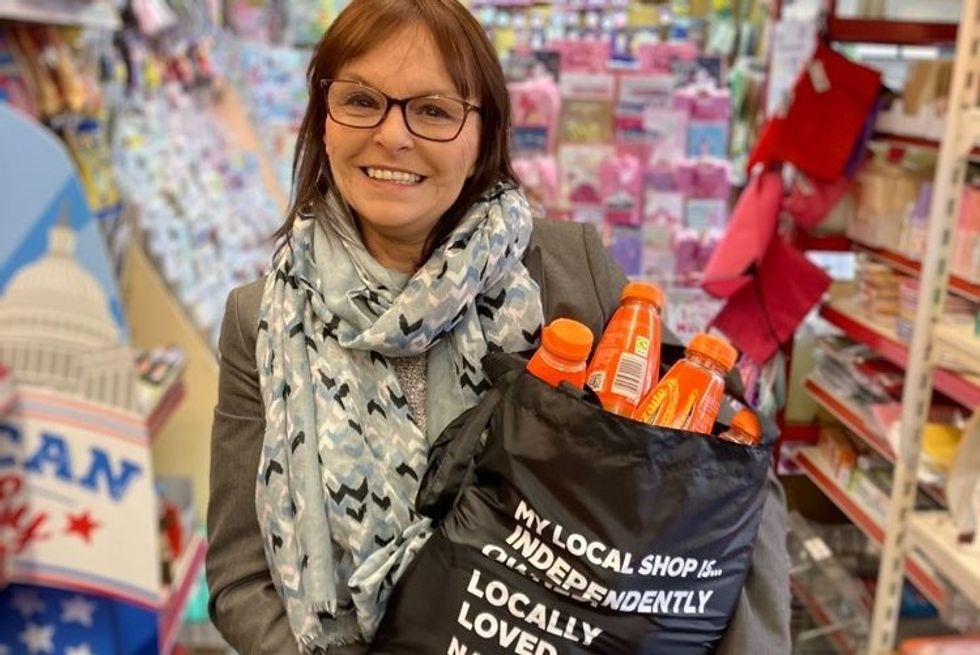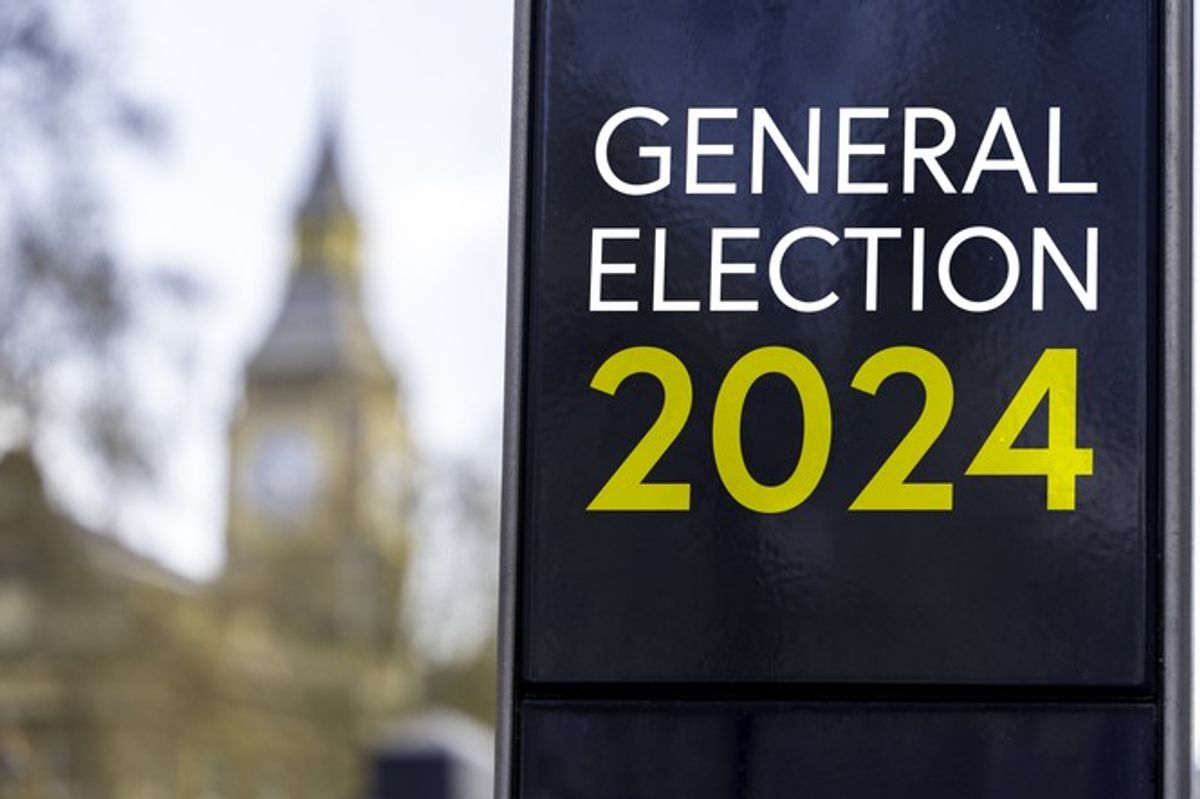As parties and politicians gear up for 2024 General Elections with a deluge of promises and manifestos, independent convenience retailers want the next government to be more in tune with businesses and the challenges they face although they are not very hopeful, Asian Trader has learned.
With almost 50,000 convenience stores across the UK, the convenience channel alone generates over £47 billion in sales and provides secure and flexible employment to over 437, 000 people across the country.
A segment that large has its own gravitational issues and challenges. However, sadly, the sector does not get due recognition and support, even after the crucial role it played during Covid lockdown and often has to deal with endless legislation and changes.
To gauge the mood of the channel, Asian Trader got in touch with some prominent and experienced indie retailers. Most of them strongly feel rising retail crime as the most important issue impacting them as this affects them directly in terms of safety, mental well being and financial stability.
Retailer Benedict Selvaratnam, who runs his family business Freshfields Market in Croydon, feels shoplifting and retail crime have risen in the past couple of years.
Freshfields Market faces frequent incidents of shoplifting, that in turn contributes to increased security costs as well as create an unsafe work environment. A few months ago, one of his staff was taken to hospital after being hit on the head by an iron nail. Some female staff members have even left the store over safety fears.

Selvaratnam told Asian Trader, “Retail crime remains a significant concern, impacting both the safety of staff and the financial stability of businesses. We urgently need enhanced legal protections for shopworkers and more responsive policing to deter crime and ensure justice.”
“Ensuring that retail workers are protected, and businesses remain viable should be a top priority for any future government.”
Retailers' associations also identify rising crime as a menace for stores and businesses.
The Scottish Grocers Federation (SGF) names “retail crime at epidemic proportions” as one of the areas of concern while the British Independent Retailers Association (BIRA) has called on the next government to “combat the growing threat of retail crime through increased police presence and better protection for staff and owners”.
Both the leading parties- Conservatives and Labour- have promised concrete steps in this direction. Among other measures, making assaulting shop workers a special offence is expected to come into effect, regardless of which party comes into power though the law alone will not dent the situation much as many a times retailers refrain from reporting to police due to long response time or sometime no response at all.
Both the leading parties have promised recruiting thousands of more police officers.
Trudy Davies, owner of Woosnam and Davies News, in Llanidloes, Wales, has been in retail for over 40 years. She welcomed the promise of more police officers as long as their presence is actually felt on the streets.
Davies told Asian Trader, “Politicians claim they will give us more police well. I will believe that’s a good move with regards to the security of our businesses and staff, but the additional force should be on the ground walking within our community and not behind desks in police centres.”
Retailer Bobby Singh, who has been running BB Nevison Superstore and Post Office in Pontefract in West Yorkshire, also feels more police presence and visibility are the need of the hour.
Singh told Asian Trader, “I would like to see more police presence on our streets for me as that would be effective in reducing crime overall.”
Regulations
Legislation complexity is also something that retailers are dealing with in an environment which is already very challenging due to reduced consumer spending. Policy and legislation – however well intentioned – always impact small shops the hardest.
Croydon-based retailer Selvaratnam feels the proposed ban on disposable vapes starting next year “threatens many independent retailers who rely on this market”.
He told Asian Trader, “While I support measures to prevent youth vaping and environmental damage, this ban could lead to substantial revenue loss and financial strain for businesses like ours. Many retailers have built their models around vape sales, and the ban could force some to close.”
Wales-based retailer Davies feels the Labour’s idea of restricting sales of energy drinks to under-16 as well as ban on advertising junk food to children is a pointless move.
Davies told Asian Trader, "The politicians are rather late to game in that one as most responsible retailers already adhere to this as a matter of their community wellbeing.

“Also, banning the advertising of junk food to children before the watershed ... they need to get in the game really , as don't they realize that children today watch social media , not TV ? Such a ban would not significantly curb unhealthy eating habits among children. Education is needed, not a TV ban.”
Resonating with Davies’ view, SGF has also called on for a move towards education and public awareness over regulation and restrictions such as generational smoking ban that directly concerns local shops.
“Where regulation is required however there needs to be a joined-up, sequential and workable approach including allowing for a sufficient notice period to introducing any new legislation,” states the SGF manifesto.
BIRA has also advocated that regulation for small retailers should be proportionate and not place an unnecessary cost burden on the retailer.
Another thing that the next government should tackle, according to indie retailers, is the rising costs of operating, including business rates, rents, energy, and labour.
Retailer Selvaratnam said, “The Labour Party’s manifesto, which promotes workers’ rights and proposes increasing wages, could further strain our finances. While we support fair wages, higher operational costs might force us to reduce staff hours or increase personal workloads, especially with consumer spending already under pressure due to economic conditions.”
"Reviewing the manifestos, the Labour Party’s focus on supporting workers aligns with our commitment to fair treatment of our staff. However, their proposed policies may increase financial pressures on small businesses.”
Retailer Davies too questioned the parties’ promise of higher wages, saying, “During elections, they all promise wage increases but how exactly are we suppose to soak up increased pressures on our businesses?”
“They say they will help but I have no appetite to believe them as in past they have given help from one hand and taken it back in other ways.
“It’s all about spin and making them look as if they are helping small businesses and high streets to the general public but in reality, it’s us who are left to foot the bill with whatever things they implement,” Davies pointed out.
Vocal for Local
C-store body Association of Convenience Stores (ACS) meanwhile is calling on retailers to seize this as an opportunity to meet with local parliamentary candidates standing in their constituency and highlight the important work, they do in the sector by inviting candidates to visit local shops.
However, it so emerged that most local retailers are certainly not very hopeful. They don’t have high hopes from the next government either, and their mood is gloomy.
Retailer Fiona Malone (also a non-exec director of the Independent Retailer Board of the ACS) runs a joint convenience shop and post office in Tenby alongside her husband Vince Malone

Speaking to Asian Trader, Fiona explained how small shops need more assistance to remain viable or else they will perish as operational and other costs are rising really fast.
“In the Local Shop Report, it emerged that people listed Post Office, pharmacy and convenience shop as their top three needs. Unless the government helps these businesses, these businesses will start to disappear,” she said.
Retailer Selvaratnam strongly feels that policymakers need to engage with independent retailers to understand their unique challenges.
He said, “The impending vaping ban and increasing operational costs highlight the need for a balanced approach that supports both public health and the economic viability of small businesses. Government subsidies or support for transitioning away from disposable vapes, along with measures to help manage rising costs, could mitigate some of these impacts.”
Davies concluded, “They (politicians) all promise help in all aspects to retailers and help to save the local high streets. In reality, when election comes looming, they all start to ‘talk the talk but never walk the walk’.”


